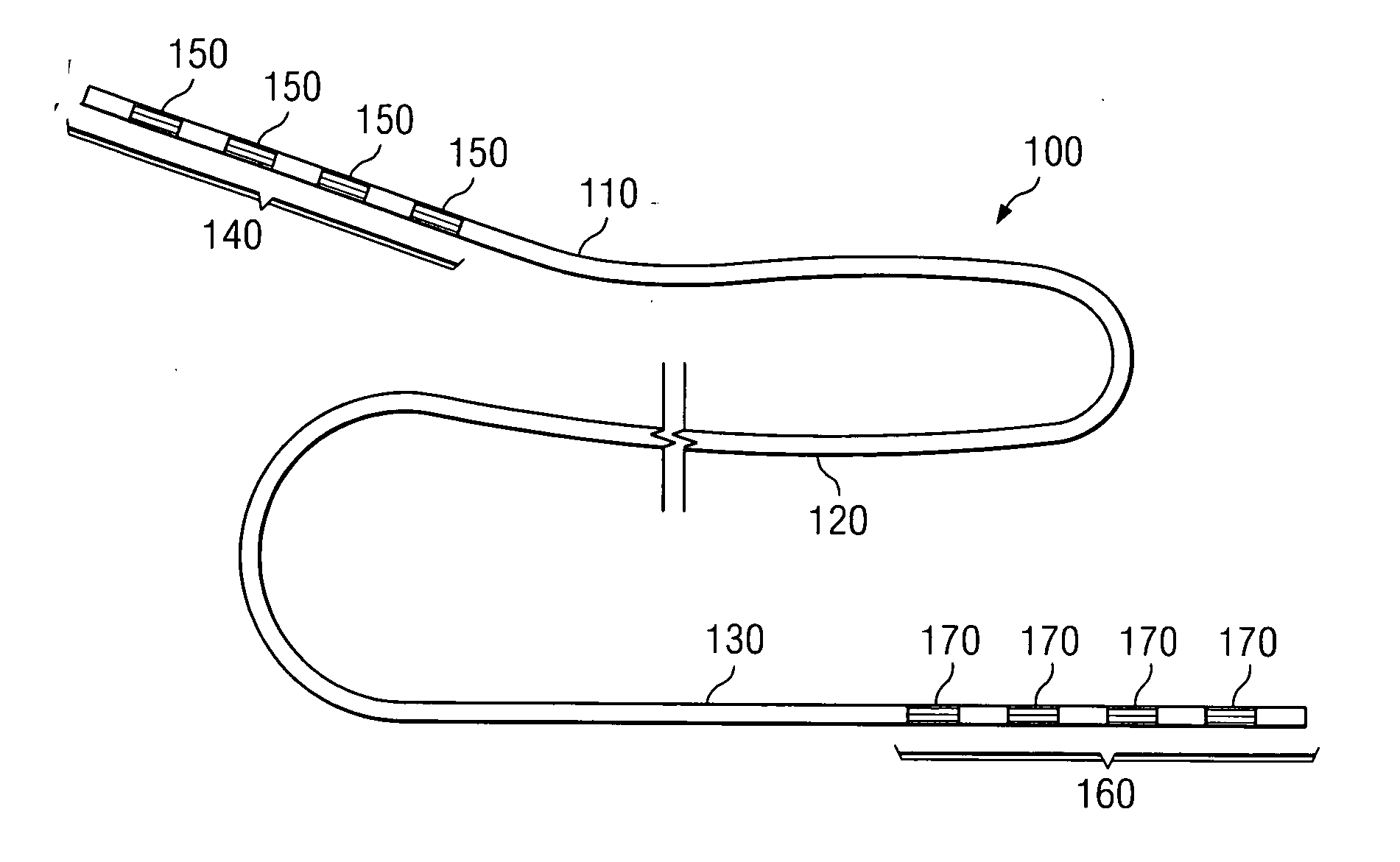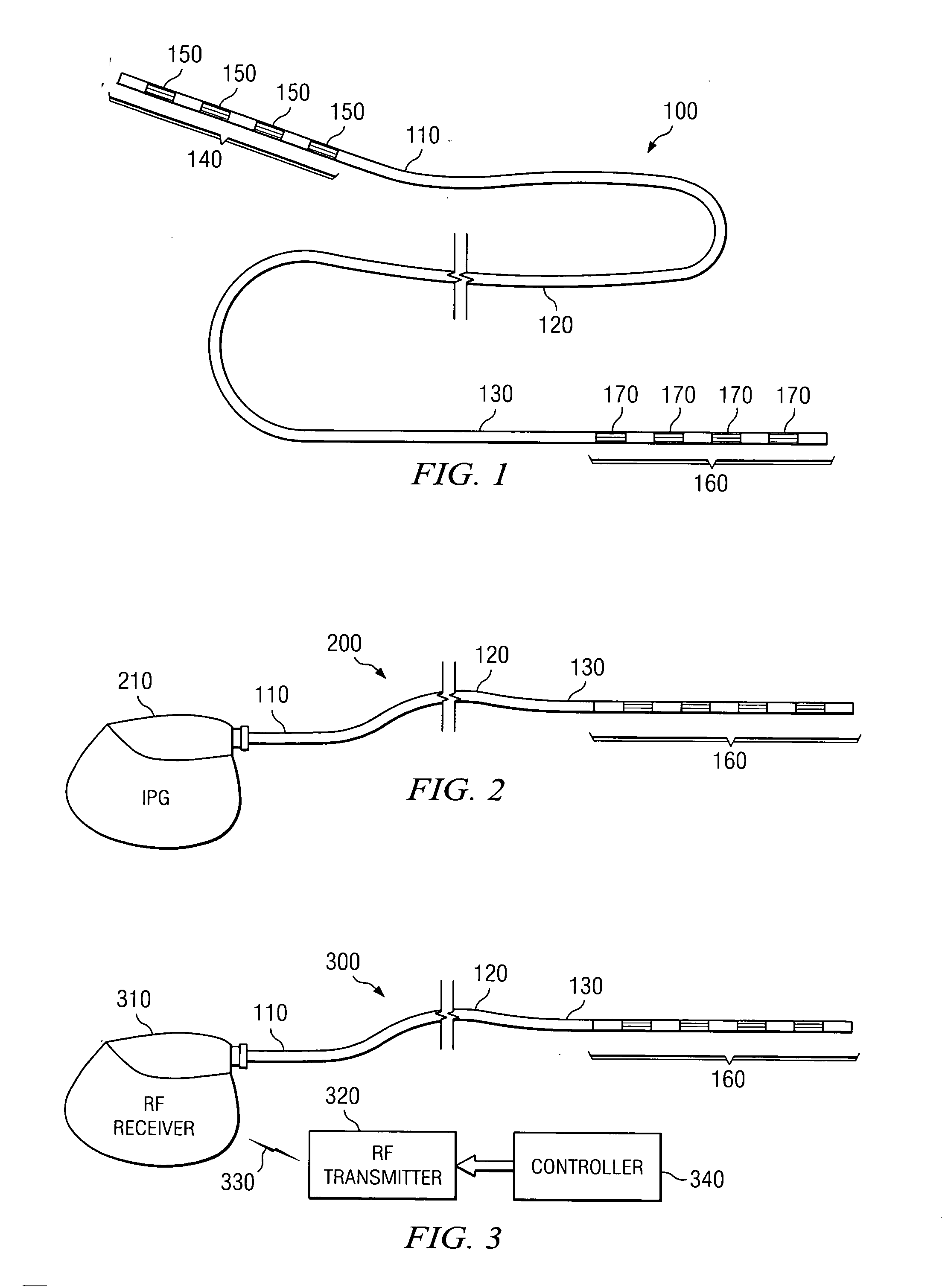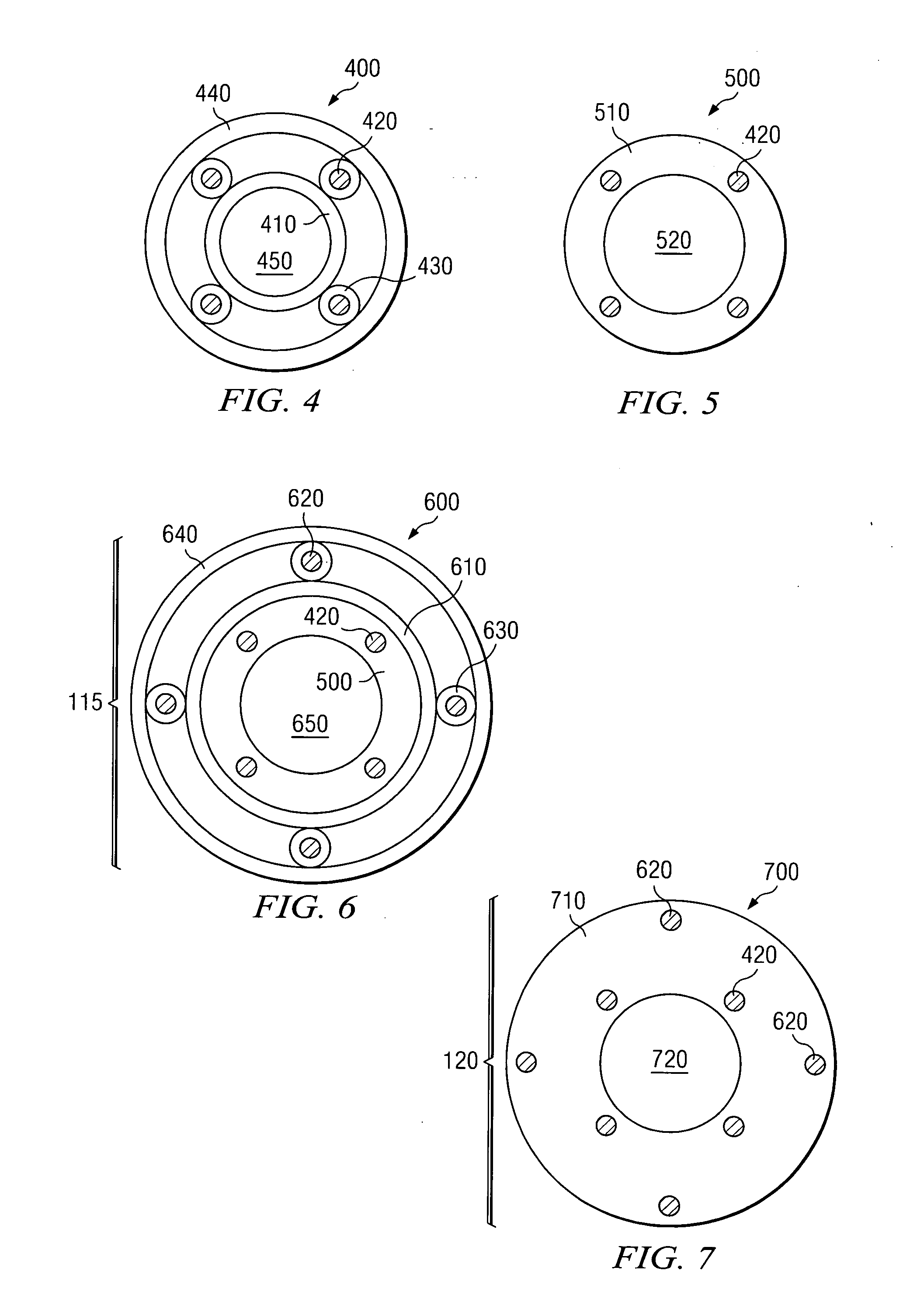System and method for providing a medical lead body having dual conductor layers
a lead body and conductor layer technology, applied in the field of medical leads, can solve the problems of non-uniform body conductor pitch, relatively large diameter lead body, and body with variable (non-uniform) wall thickness
- Summary
- Abstract
- Description
- Claims
- Application Information
AI Technical Summary
Problems solved by technology
Method used
Image
Examples
first embodiment
[0071] An advantageous embodiment of a method for making lead body 120 (shown in FIG. 7) will now be described. An inner layer 610 of extrusion material is placed on a cylindrically shaped first layer unitary body 500 that has been formed as previously described. After the mandrel is removed from first layer unitary body 500, the space formerly occupied by the mandrel in first layer unitary body 500 will form lumen 650. Each conductor 620 of the second plurality of conductors 620 is coated with a layer 630 of the same extrusion material that is used to form inner layer 610. Alternatively, the extrusion material used to form layer 630 may not be the same type of extrusion material that is used to form inner layer 610. Each conductor 620 of the second plurality of conductors 620 is cylindrically wrapped around (i.e., coiled around) the inner layer 610 of extrusion material. The layer 630 of extrusion material around each conductor 620 ensures that the conductors 620 are uniformly spac...
second embodiment
[0085] An advantageous embodiment of a method for making lead body 120 (shown in FIG. 9) will now be described. A second plurality of conductors 820 is provided in which each conductor 820 is coated with a layer 830 of extrusion material. Each conductor 820 of the second plurality of conductors 820 is coated with a layer 830 of the same extrusion material that is used to form first layer unitary body 500. Alternatively, the extrusion material used to form layer 830 may not be the same type of extrusion material that is used to form first layer unitary body 500. Each conductor 820 of the second plurality of conductors 820 is cylindrically wrapped around (i.e., coiled around) first layer unitary body 500 that has been formed as previously described. The layer of extrusion material 830 around each conductor 820 ensures that the conductors 820 are uniformly spaced. An outer layer 840 of extrusion material is placed over the second plurality of conductors 820. The outer layer 840 of extr...
third embodiment
[0094] An advantageous embodiment of a method for making lead body 120 (shown in FIG. 11) will now be described. A second plurality of conductors 1020 is provided in which each conductor 1020 is coated with a layer 1030 of extrusion material. Each conductor 1020 of the second plurality of conductors 1020 is coated with a layer 1030 of the same extrusion material that is used to form first layer unitary body 500. Alternatively, the extrusion material used to form layer 1030 may not be the same type of extrusion material that is used to form first layer unitary body 500. Each conductor 1020 of s the second plurality of conductors 1020 is cylindrically wrapped around (i.e., coiled around) the inner layer 1010 placed on the first layer unitary body 500 that has been formed as previously described. The layer 1030 of extrusion material around each conductor 1020 ensures that the conductors 1020 are uniformly spaced.
[0095] In one advantageous embodiment of lead body 120, the conductors 420...
PUM
 Login to View More
Login to View More Abstract
Description
Claims
Application Information
 Login to View More
Login to View More - R&D Engineer
- R&D Manager
- IP Professional
- Industry Leading Data Capabilities
- Powerful AI technology
- Patent DNA Extraction
Browse by: Latest US Patents, China's latest patents, Technical Efficacy Thesaurus, Application Domain, Technology Topic, Popular Technical Reports.
© 2024 PatSnap. All rights reserved.Legal|Privacy policy|Modern Slavery Act Transparency Statement|Sitemap|About US| Contact US: help@patsnap.com










